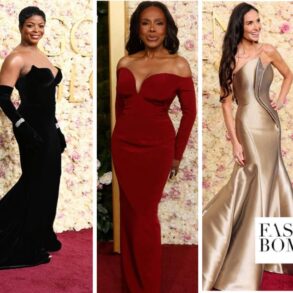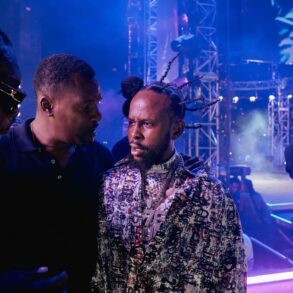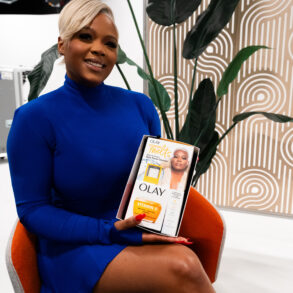 One of the most influential and popular genres of music is turning 50 years old this summer, and fans from all over the country are celebrating.
One of the most influential and popular genres of music is turning 50 years old this summer, and fans from all over the country are celebrating.
Locally, fans can revisit the last 50 years of the hip-hop cultural phenomenon at the Art of Hip Hop Social event taking place at the Arts Council on Aug. 4. Organized by Route 87, LLC, the event will feature music from each decade of hip-hop, dancing, a DJ mixing performance and a vintage fashion runway.
Guests are encouraged to wear hip-hop themed attire as the styles attributed to hip-hop popularity will be celebrated.
Hip-hop and the genre of rap is one of the most influential types of music we’ve had in recent history. The way people talk, the clothes they wear, and the way they style their hair can all be traced back to some hip-hop roots.
Route 87, LLC consists of a dynamic duo made up of local businesswomen Tracey Morrison and Courtney Banks-McLaughlin. Their business consists of event planning and bringing people together in the community. They’ve held several events around town such as a fraternities and sororities meet-up, women empowerment events, and partnering with the George Floyd Memorial Foundation to give back to the community.
Up & Coming Weekly spoke with the two about their love and respect for hip-hop culture, what they do as a collective, and their goal of bringing different fans of hip-hop together in celebration of the 50th Anniversary.
“We want to create an area where people can ‘live, work and play,’ but take ‘play’ to another level,” Morrison says. “A lot of people say ‘there isn’t much to do in Fayetteville’ when they look for things to do and we want to continue to change that narrative. We took a leap of faith in doing this post pandemic. For us to do this and see how much we’ve grown together in throwing events means a lot.”
Hip-Hop was born in the South Bronx, New York, in the summer of 1973. It started with a DJ named DJ Kool Herc who threw parties with records and turntables. During the parties he provided a technique that isolated and repeated musical breaks, which laid a foundation for party goers to experiment with the sounds and start rhyming over the beats. This musical movement followed on the heels of the civil rights movement, giving African Americans and people of color another way to fight against systems of oppression. This genre shed a bright light on issues like poverty, gun and drug violence, and trauma, but in a poetic way for the world to digest and understand.
This underground phenomenon around the Bronx spread quickly to house parties all throughout New York. People started using boomboxes and bringing them everywhere. People continued to rhyme and rap over these beats, and eventually would start getting recorded on cassette tapes. Hip-hop wasn’t on the radio or being sold in stores at the beginning, so the only way to hear it was being outside in the streets or being lucky enough to get your hands on a cassette tape.
 Some notable artists in the 70’s were groups like The Sugarhill Gang, Grandmaster Flash & The Furious Five, and the Ghetto Brothers. The Sugarhill Gang’s “Rapper’s Delight” was the first rap single to make it into the top 40 of the Billboard Hot 100, reaching 36 in early 1980. It is credited with introducing rap music and hip-hop culture to a wider audience.
Some notable artists in the 70’s were groups like The Sugarhill Gang, Grandmaster Flash & The Furious Five, and the Ghetto Brothers. The Sugarhill Gang’s “Rapper’s Delight” was the first rap single to make it into the top 40 of the Billboard Hot 100, reaching 36 in early 1980. It is credited with introducing rap music and hip-hop culture to a wider audience.
When speaking with Morrison, she says. “Hip-hop to me is Black art. It’s Black culture and it’s given African Americans a way to express ourselves through music. It’s represented through graffiti, fashion, breakdancing and many other things.”
Hip-hop became a voice and passion for the youth in the country, and that still holds true today. It allowed young artists and poets to express themselves and communicate what they were experiencing in their communities on a much broader scale.
The music gave rise to many other forms of artistic expression. Things like graffiti, break dancing, movies and fashion brands gained popularity quickly. Through these different mediums, artists have been able to create ways for people to enjoy hip-hop culture.
As hip-hop grew, the more personalities it took on. It evolved over the years into sub-genres throughout different regions of the United States and now all over the world.
By the late 80s there were groups like Naughty By Nature, N.W.A, Public Enemy, Salt-N-Pepa, and many other groups and individuals taking over music. Hip-hop spread to a lot of cities, most notably Detroit, Chicago, Los Angeles and New York City, but also down south in places like Atlanta, New Orleans, and Houston … all the way to Miami and Memphis.
Banks-McLaughlin, who grew up in Detroit and moved to Arkansas for college, said she experienced hip-hop slightly differently.
“Growing up in Detroit, Michigan, we listened to rap, but we also liked house music. It was more fast-pace and more dancing, but when I went to Arkansas, I was in college. It was a lot of chopped and screwed, Texas-influenced music. Artists like Paul Wall, DJ Screw, and a bunch of new down south artists.”
In addition to being a driving force of Route 87, LLC, Banks-McLaughlin is also a Fayetteville City Council member representing District 8.
The 90s introduced the music world to artists who are now known not only for their musical abilities, but also for their influence across the entertainment industry. Names like Snoop Dogg, Jay-Z, Lauryn Hill and Missy Elliot redefined the boundaries of the genre. The 2000s brought Kanye West, Nelly, 50 Cent, Kendrick Lamar and Cardi B into the spotlight.
North Carolina has its own hip-hop scene, and the city of Fayetteville is home to a number of well-known hip-hop artists. The more notable names include J.Cole, Morray, Rain 910, and Bill Curtis and the Fatback Band.
Up & Coming Weekly had a chance to talk with the artist who will be featured as the DJ of the Art of Hip-Hop Social event, DJ Stizzy Baby. DJ Stizzy, also known as ‘Stizzy The great, is a Fayetteville native, 80s baby who fell in love with hip-hop at an early age.
Stizzy says, “I have seen Fayetteville hip-hop go from performers coming to one club on Saturday and Sunday nights, being in there until about three or four in the morning, just wanting a chance to perform, to artists from this city actually being known on a national level.”
When asked about local hip-hop, he says, “I’ve seen it grow tremendously. I remember before the internet, when you really had to be on the scene, you really had to listen to the radio to know who’s who and where people are going to be at. You couldn’t be in the kitchen, pouring a soda, and scrolling through your news feed to see what’s the latest. You had to put forth the effort to be involved, to know where to go to know what’s going on.”
Hip-hop has changed and evolved much over the years. With that in mind Route 87, LLC and DJ Stizzy Baby are excited to be playing music from each decade of the 50 years from the 70’s until now at the event.
The Art of Hip-Hop Social event taking place at the Arts Council will be a time capsule for fans to enjoy every era and every region. If you’re free on Aug. 4, join them in downtown Fayetteville from 7 to 10 p.m.
Tickets are $20 and you can buy them by visiting Eventbrite.com and searching ‘The Art of Hip Hop Social.’
This post was originally published on this site be sure to check out more of their content.








